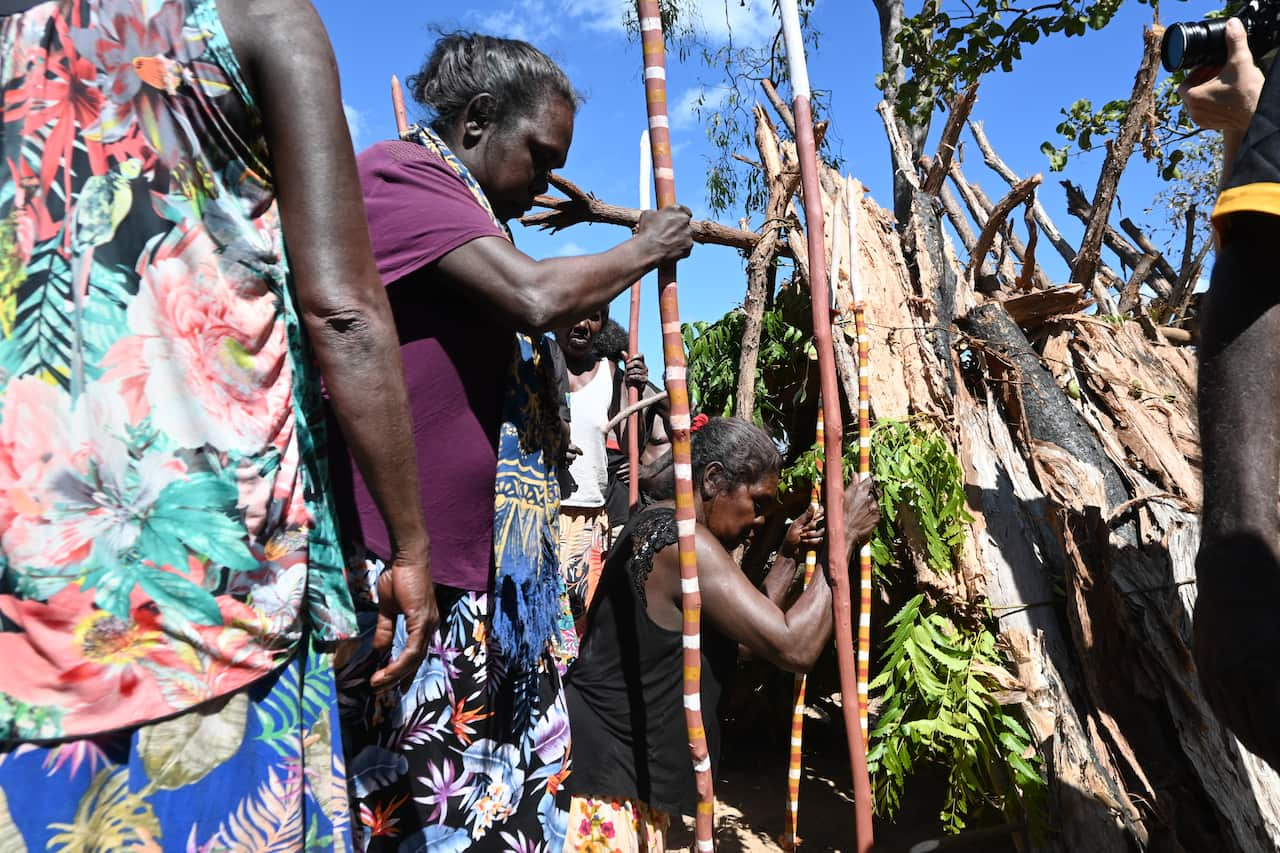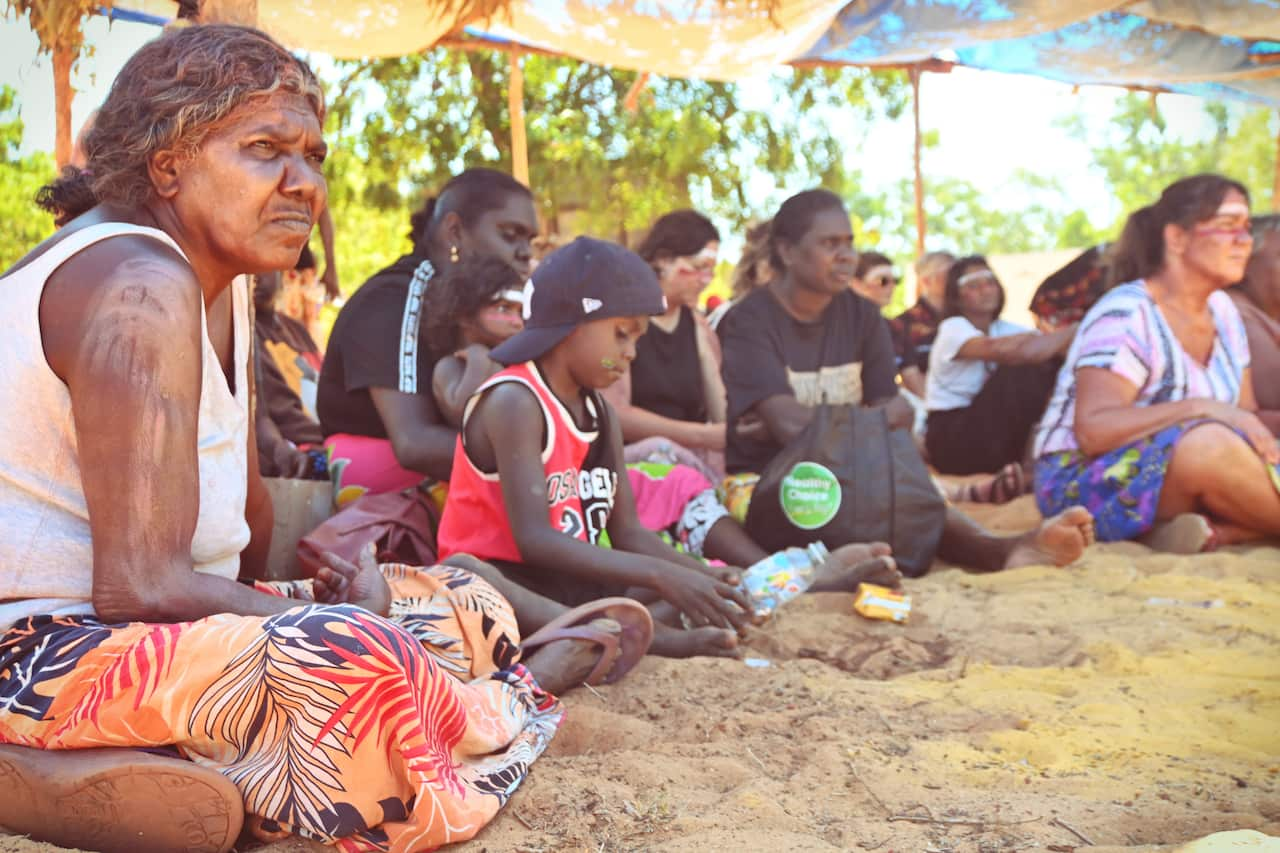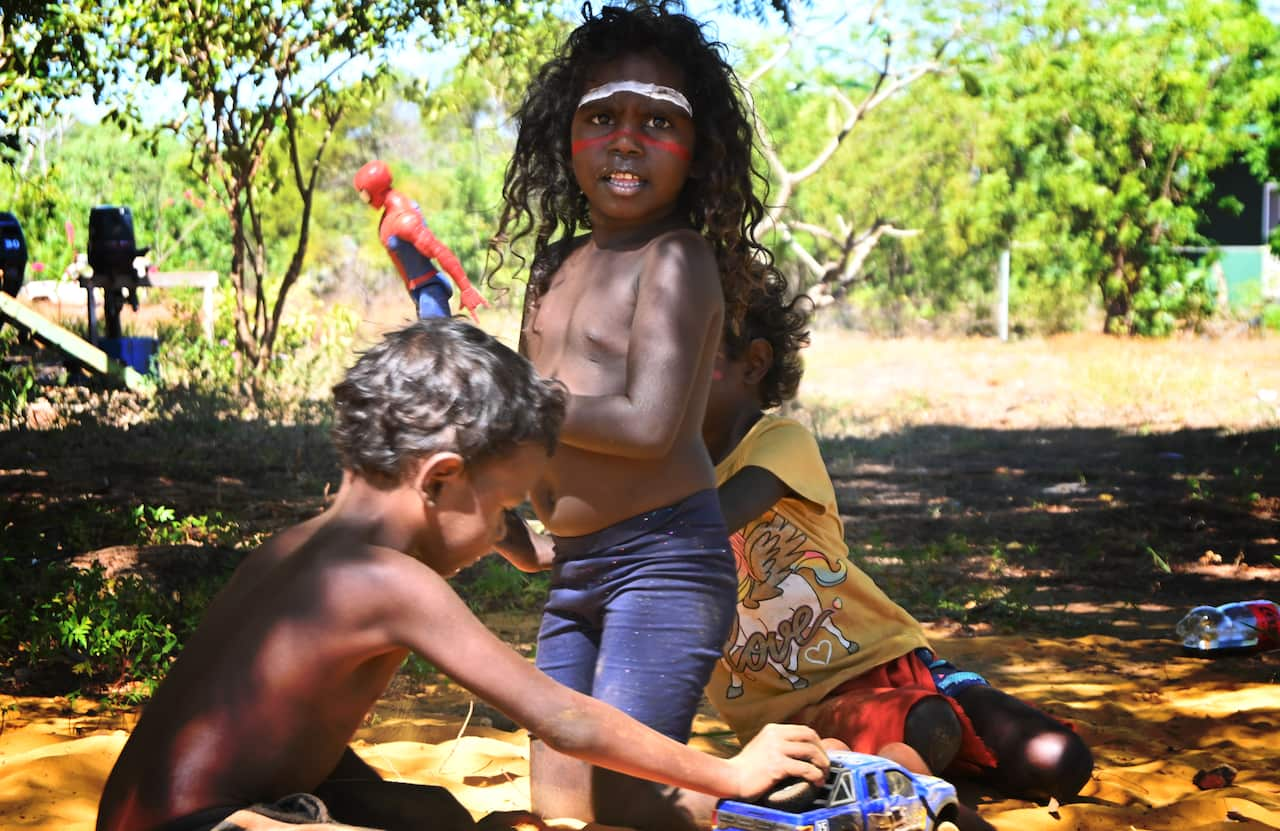Elcho Island Elder Richard Gandhuwuy Garrawurra was born in the Arnhem community of Milingimbi during the Second World War.
Surrounded by his people and his culture, he considers it a promising start in life.
“I went from [Milingimbi] to my own homeland, where there is a sacred site, where there is a waterhole, where there is all sorts of power that will talk to me,” he told NITV.
According to Elders in East Arnhem Land, there is a gift of power and healing that comes with birthing on Country.
But for more than 40 years, women have flown to hospitals in Darwin and Nhulunbuy to give birth.
Now, Arnhem Land communities like Galiwin’ku are calling on the Commonwealth to return an ancient ceremony to their traditional lands.
With persistently poor results for women and babies, Galiwin’ku, 523 kilometres east of Darwin, is fighting to bring back their birth rites.
Women dance around an old birthing hut, in an important ceremony in Galiwin’ku Source: NITV / Laetitia lemke
Associate Professor Elaine Ḻäwurrpa Maypilama is an important Elder in Galiwin’ku, where she has been working with the Molly Wardaguga Research Centre to reclaim her people’s birth rites.
“When children come to the world, they need to feel the land, they need to know who they are, they need to know what their identity is,” Assoc. Prof. Maypilama explains.
“Missionaries and government come in and changing the law and everything,” Yolngu woman Helen Guyumul says.
We lost everything. Now we are focusing … to have [birthing] in community and show other communities, sharing the knowledge.
‘People are dying’
Birthing outcomes have been poor for expectant Indigenous mothers engaging with the western health system. Source: NITV / Laetitia Lemke
On average, Australia is one of the safest places in the world for babies to be born, according to the .
But perinatal mortality rates for Aboriginal and Torres Strait Islander babies were almost double the national average, and the situation was even worse in very remote settings.
Dr Yvette Roe is the director of the Molly Wardugaga Research Centre, at Charles Darwin University, working to improve outcomes.
“People are dying in the [western] system,” Dr Roe says.
“They’re very traumatised and they don’t feel safe, so the work that’s happened here is to try and address those barriers.”
Yolngu women have worked with Charles Darwin University as part of a six-million dollar federally-funded program to address this.
Local people have now been trained to support expectant mothers through their pregnancy, birthing and post-natal journey in a role known as a Djakamirr.
Associate Professor Sarah Ireland says the course merges the best wisdom from the Australian Doula College and Yolngu practices.
“We’ve got eight students at the moment who are fulfilling those competencies and are paid a scholarship as they go along,” Assoc. Prof. Ireland says.
“We are just about to do more training in August where we have another 11–14 places.”
Government urged to help
Helen Guyupul is one of those women.
She says Yolngu women are being overwhelmed by a system that isn’t designed for them and isn’t offered in their language.
She’s already supported one first-time mother through the health system in Darwin and is about to fly out with another expectant mother to spend the last month of her pregnancy with her in Nhulunbuy.
Children painted up for ceremony play in the sand at Galiwin’ku on Elcho Island. Source: NITV / Laetitia Lemke
It’s work she says must happen in Galiwin’ku, and wants the Commonwealth to help make that happen.
Speaking to Assistant Minister for Indigenous Health Malarndirri McCarthy, Richard Gandhuwuy Garrawurra said the request was “very, very important.”
“This is the message stick … we gonna give this one on behalf of the Elcho Island Traditional Owners,” he told her.
It’s a message of Yolngu law that Assistant Minister McCarthy will take back to the halls of power in Canberra, where parliament will meet for the last time before winter break.
“There is still a long way to go for First Nations women,” McCarthy said.
“To be able to focus on pre-birth, the birthing and post birth to raise our children in the right way to grow healthy all of that is closing the gap.”


